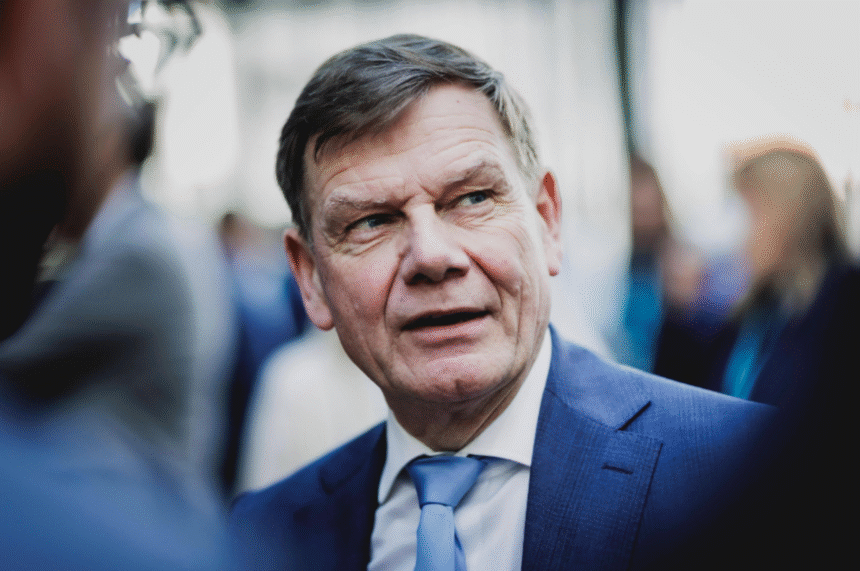With Johann Wadephul at the helm of Germany’s Ministry of Foreign Affairs, the Western Balkans can expect clear support for European integration, but also strong demands for real reforms, according to DW.
With the appointment of Dr. Johann David Wadephul as Foreign Minister, Germany is moving toward a more pragmatic diplomacy. Wadephul, born in 1963 in Husum, Northern Germany, is a law graduate from the University of Kiel and a reserve major in the Bundeswehr. A member of the CDU since 1982, he has built a long political career in Schleswig-Holstein and has been a Bundestag member since 2009.
After the 2017 elections, Wadephul was appointed deputy leader of the CDU/CSU parliamentary group for defense, foreign policy, and security matters. As vice-chair of NATO’s Parliamentary Assembly, he has advocated for closer European cooperation in security and unwavering support for Ukraine. Regarding transatlantic relations and U.S. policy changes under President Donald Trump, Wadephul said, “We must keep our hand extended, be ready for negotiations, but ensure we can defend ourselves if negotiations fail.”
A More Measured and Pragmatic Diplomacy
“Unlike Annalena Baerbock, Wadephul will adopt a more restrained, pragmatic style, focused on concrete results,” said Hans-Joachim Falenski, former foreign policy advisor to the CDU/CSU group.
An example of this approach was seen in 2022, when Wadephul openly criticized Chancellor Olaf Scholz for his first official visit to the Balkans. Scholz publicly requested that Serbia recognize Kosovo’s independence, a statement Wadephul called “amateurish,” as he believed such demands should be made diplomatically to avoid blocking dialogue. “This is desirable and everyone knows it, but recognition should come at the end of a process. Publicly stating this so amateurishly complicates the process for Serbia,” Wadephul said in the Bundestag at the time.
Strong Support for Kosovo-Serbia Dialogue and Albania’s EU Path
Kolë Gjoka, Honorary Consul of Albania in Hamburg and former Bundestag candidate for the CDU of Schleswig-Holstein, has worked closely with Wadephul in party structures. He believes Wadephul will have a significant influence on the Kosovo-Serbia dialogue and will be a strong supporter of Albania’s EU membership path.
Wadephul has long led the Bundestag’s Working Group on the Western Balkans, which focused on developments in the region. He and Gunther Krichbaum, now appointed Secretary of State for European Affairs in the Ministry of Foreign Affairs, are expected to prioritize the Western Balkans while emphasizing the need for reforms.
EU Integration Based on Merit
Both Wadephul and Krichbaum have expressed clear views on internal politics in Albania, including critiquing the internal conflicts within the Democratic Party of Albania. For example, Krichbaum condemned violent protests by the PD in Tirana and criticized its leader Sali Berisha, emphasizing the need for a strong, peaceful opposition that aligns with European values.
Wadephul and Krichbaum were also key architects of the additional conditions that the Bundestag set in 2020 for opening Albania’s EU accession negotiations. Wadephul emphasized, “We set several preconditions, which cost me a lot of work and energy, and if these are not met, it will be difficult for me to convince my parliamentary group to support the process.”
Reforms and the Rule of Law
The EU integration process will remain focused on key reforms, especially in Albania. As Hans-Joachim Falenski notes, “Judicial reforms, the fight against corruption, and strengthening institutions will remain key criteria for the European integration process.”
Mijatović: No Path for Authoritarian Regimes
A notable feature of Wadephul’s appointment as Foreign Minister is that for the first time in nearly 60 years, the Ministry of Foreign Affairs is in the hands of the CDU. Historically, this post has usually been given to coalition partners. Now, both the Chancellor’s office and the Ministry of Foreign Affairs are led by the same party, the CDU.
Opposition politician Boris Mijatović, an expert on the Balkans in the Green Party, sees this as a potential issue, warning that the influence and independence of German foreign policy may be weakened, as future Chancellor Friedrich Merz is expected to play an active role in international affairs, consolidating more power in his office.
Mijatović expects Wadephul to advocate for the rule of law, democracy, and a clear European perspective for the countries of the Western Balkans. “Germany must stand on the side of democratic forces in the region and not give space to authoritarian regimes,” he told Deutsche Welle.







